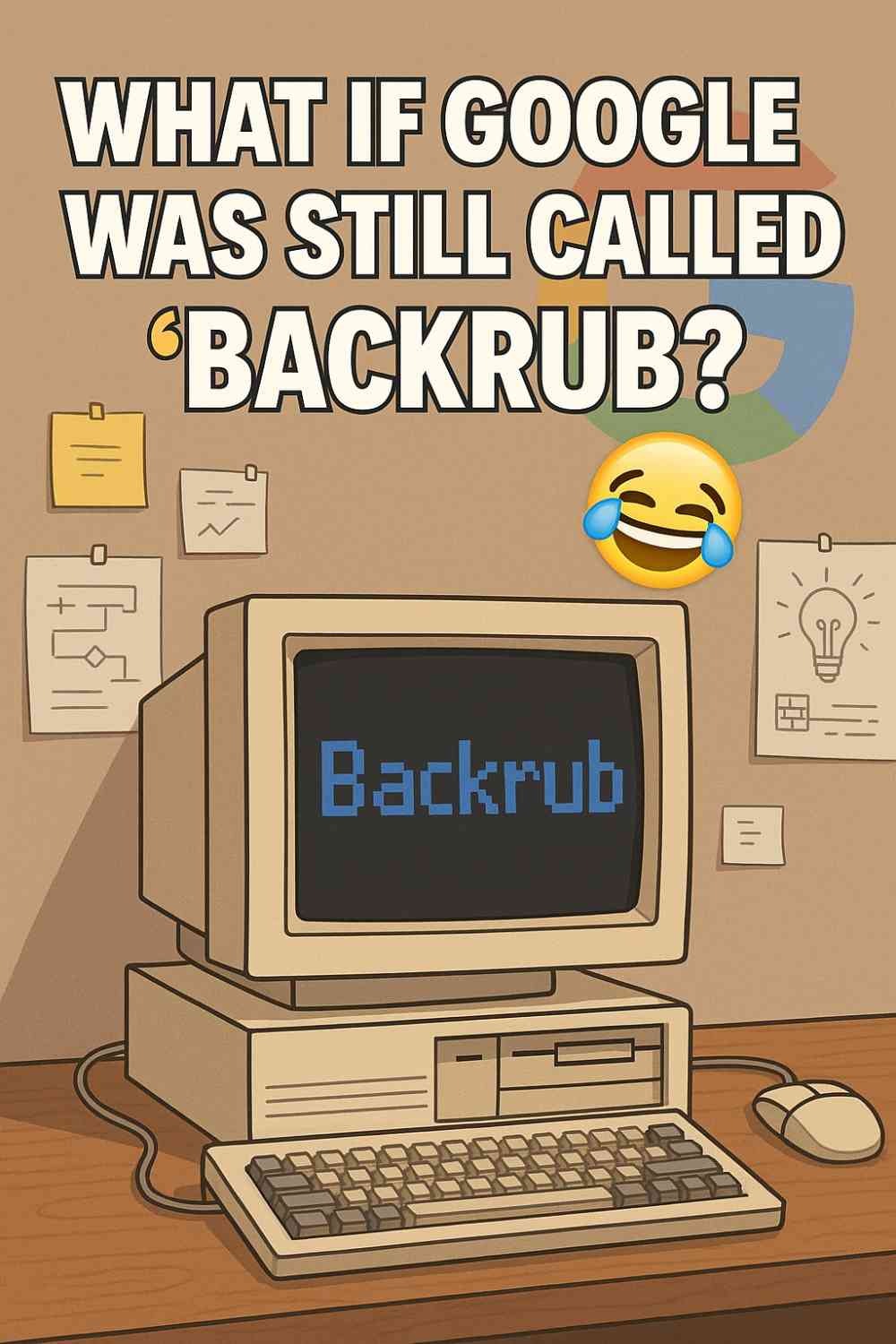 Imagine if every time you needed an answer, you had to say, “Let me Backrub that.” Sounds ridiculous, right? Yet that’s exactly where the world’s most dominant search engine began—not as the sleek, all-knowing Google we rely on today, but as a clunky, oddly named research project cooked up in a Stanford dorm room.
Imagine if every time you needed an answer, you had to say, “Let me Backrub that.” Sounds ridiculous, right? Yet that’s exactly where the world’s most dominant search engine began—not as the sleek, all-knowing Google we rely on today, but as a clunky, oddly named research project cooked up in a Stanford dorm room.
Larry Page and Sergey Brin, the brains behind this now-unstoppable tech titan, initially called their creation Backrub—yes, really. The name came from the way their algorithm analyzed “backlinks” to rank web pages. It’s a miracle they pivoted before the name stuck. Can you picture investors keeping a straight face while writing checks to “Backrub, Inc.”?
Why “Backrub” Was Actually Genius (In a Nerdy, 1990s Way)
Before you dismiss the name as laughable, consider this: Backrub’s approach was revolutionary. Most early search engines ranked results based on how often keywords appeared on a page—primitive, easily manipulated, and often useless. Page and Brin flipped the script. Their system studied backlinks, treating them like academic citations: the more reputable sites linking to you, the higher you ranked.
Brilliant? Absolutely. Marketable? Not so much.
The name screamed “college project,” not “global empire.” Even in 1996, when the web was still the Wild West, branding mattered. A tech-savvy friend might’ve shrugged and used Backrub, but convincing Aunt Carol to “just Backrub it” would’ve been a losing battle.
The Moment Everything Changed
The shift from Backrub to Google happened in 1997. Legend has it the name “Google” was born from a misspelling of “googol” (the number 1 followed by 100 zeros). Fitting, considering the scale of information they aimed to organize. But let’s be real—it was also infinitely cooler.
Fun fact: The original Google homepage? Barebones. Just a search box, two buttons, and the now-iconic logo (which, by the way, was designed by Brin himself using free graphics software). No ads, no clutter—just pure, unfiltered utility. If only we could time-travel back to that simplicity.
What If They’d Stuck With Backrub?
Picture an alternate universe where Page and Brin stubbornly held onto the name. Would we still have “Backrub Maps”? “Backrub Docs”? Would “Backrub yourself” be a common phrase? The mind reels.
Jokes aside, branding shapes perception. Google sounds fast, sharp, global—like the snap of fingers delivering instant answers. Backrub sounds like something you’d awkwardly request at a spa. The lesson? Even the most groundbreaking ideas need packaging that doesn’t make people cringe.
The Unstoppable Rise of a Better Name
Once rebranded, Google exploded. By 1998, it was processing 10,000 searches a day. Today? Billions. The name became a verb (“Just Google it”), a cultural landmark, and a synonym for knowledge itself. Could that have happened with Backrub? Doubtful.
But here’s the kicker: The tech mattered more than the name. Page and Brin’s backlink algorithm (later dubbed PageRank) was the real game-changer. Without it, even the catchiest name wouldn’t have saved them. Still, branding was the final push they needed to go from “Stanford experiment” to “household necessity.”
Why This Still Matters Today
Google’s origin story isn’t just trivia—it’s a masterclass in innovation.
🔹 Big ideas start small (and weird). Even geniuses have awkward first drafts.
🔹 Names carry weight. A clunky brand can bury brilliance.
🔹 Execution is everything. The best ideas die without smart pivots.
Next time you Google something, take a second to appreciate the absurdity of its backstory. The internet’s most powerful tool began as a pun about backlinks. If that doesn’t inspire you to embrace your own weird ideas, what will?
If you enjoy uncovering weird and wonderful facts about how things began, you’ll love the Bing Homepage Quiz—a daily trivia challenge that rewards curiosity just like this.
And if you’re hungry for current events with a twist, check out the Bing News Quiz to see how well you’re keeping up with the world.
So here’s to Backrub—the name we’ll never stop laughing about, and the foundation of the search giant we’ll never stop using. Sometimes, the best innovations begin with a terrible first name.
